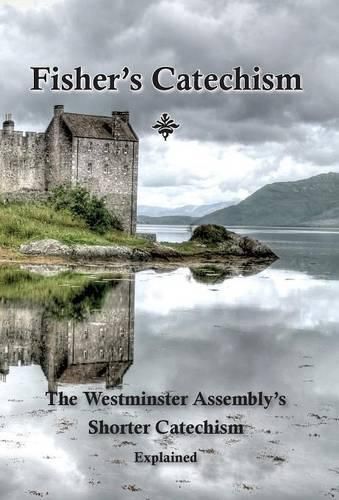Readings Newsletter
Become a Readings Member to make your shopping experience even easier.
Sign in or sign up for free!
You’re not far away from qualifying for FREE standard shipping within Australia
You’ve qualified for FREE standard shipping within Australia
The cart is loading…






This title is printed to order. This book may have been self-published. If so, we cannot guarantee the quality of the content. In the main most books will have gone through the editing process however some may not. We therefore suggest that you be aware of this before ordering this book. If in doubt check either the author or publisher’s details as we are unable to accept any returns unless they are faulty. Please contact us if you have any questions.
Ebenezer Erskine and his son-in-law, James Fisher, were partners in producing what was at first spoken of as The Synod’s Catechism, but came to be known better as Fisher’s, for it was the younger man that finished it and perhaps had the main hand in most of it, though the greater share of the earlier part has been attributed to Ebenezer Erskine. This exposition of the Shorter Catechism attained a greater vogue than any other in Scotland, even than Willison’s, though his was very much in use. Fisher’s Catechism thus exercised more of a formative influence in moulding the thoughts of religious homes and in making so many of the people of Scotland skilled in theological matters than did any other single catechetical work expository of the Shorter Catechism. It continued to be issued down until the middle of the 19th century; and it found acceptance far beyond the ranks of the Secession. The Presbyterian Board at Philadelphia, in its first forty years, sold almost 20,000 copies. (pg. 177). From, Scottish Theology, by John MacCleod – originally published in 1943, reprinted Greenville, SC: Reformed Academic Press, 1995.
This edition of Fisher’s Catechism began as the devotional exercises of one man who scanned, proofread, meditated on, taught from and generally fell in love with this priceless tribute to the Lord Jesus Christ, the Westminster Standards and Scottish Theology. It is presented now to the reader with prayers that the Holy Spirit will be pleased to use it to promote interest in sound theology and the things above. Col. 3:2
$9.00 standard shipping within Australia
FREE standard shipping within Australia for orders over $100.00
Express & International shipping calculated at checkout
This title is printed to order. This book may have been self-published. If so, we cannot guarantee the quality of the content. In the main most books will have gone through the editing process however some may not. We therefore suggest that you be aware of this before ordering this book. If in doubt check either the author or publisher’s details as we are unable to accept any returns unless they are faulty. Please contact us if you have any questions.
Ebenezer Erskine and his son-in-law, James Fisher, were partners in producing what was at first spoken of as The Synod’s Catechism, but came to be known better as Fisher’s, for it was the younger man that finished it and perhaps had the main hand in most of it, though the greater share of the earlier part has been attributed to Ebenezer Erskine. This exposition of the Shorter Catechism attained a greater vogue than any other in Scotland, even than Willison’s, though his was very much in use. Fisher’s Catechism thus exercised more of a formative influence in moulding the thoughts of religious homes and in making so many of the people of Scotland skilled in theological matters than did any other single catechetical work expository of the Shorter Catechism. It continued to be issued down until the middle of the 19th century; and it found acceptance far beyond the ranks of the Secession. The Presbyterian Board at Philadelphia, in its first forty years, sold almost 20,000 copies. (pg. 177). From, Scottish Theology, by John MacCleod – originally published in 1943, reprinted Greenville, SC: Reformed Academic Press, 1995.
This edition of Fisher’s Catechism began as the devotional exercises of one man who scanned, proofread, meditated on, taught from and generally fell in love with this priceless tribute to the Lord Jesus Christ, the Westminster Standards and Scottish Theology. It is presented now to the reader with prayers that the Holy Spirit will be pleased to use it to promote interest in sound theology and the things above. Col. 3:2